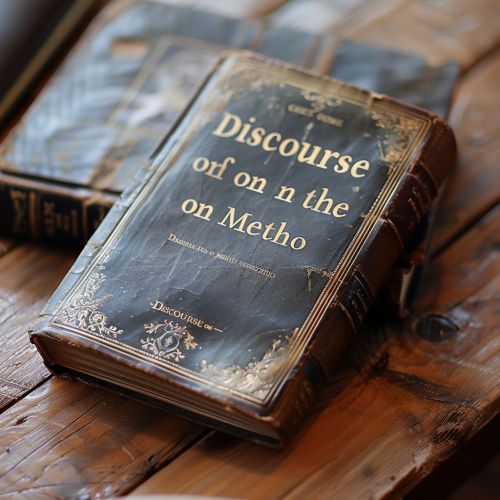Discourse on the Method
Overview
"Discourse on the Method" is a philosophical and autobiographical treatise written by René Descartes and published in 1637. It is best known as the source of the famous quotation "Cogito, ergo sum" ("I think, therefore I am"), which occurs in Part IV of the work. The book is one of the most influential works in the history of modern philosophy, and important to the development of natural sciences.


Background
In the "Discourse on the Method", Descartes attempts to arrive at a fundamental set of principles that one can know as true without any doubt. To achieve this, he employs a method called methodological skepticism: he doubts any idea that can be doubted. He then elaborates on some of the most enduring philosophical questions relating to the self, the mind-body problem, knowledge, and belief.
Content
The "Discourse on the Method" is divided into six parts.
Part I
In Part I, Descartes discusses his dissatisfaction with traditional philosophy and education, and his decision to seek a new method of obtaining knowledge.
Part II
In Part II, Descartes outlines his new method, which involves: never accepting anything as true that is not clearly known to be such; dividing problems into as many parts as possible; directing thoughts in an orderly manner, by beginning with the simplest objects and ascending gradually to the most complex; and making enumerations so complete and reviews so general that nothing is omitted.
Part III
In Part III, Descartes applies his method to moral issues, arriving at a provisional moral code, known as the "provisional morals".
Part IV
In Part IV, Descartes discusses knowledge derived from reason and from the senses. Here, he introduces the famous phrase, "Cogito, ergo sum" as a fundamental element of his philosophy.
Part V
In Part V, Descartes outlines his ideas on physical science and the possibility of using his method to make progress in knowledge of the natural world.
Part VI
In Part VI, Descartes discusses the difference between humans and animals, and offers some conjectures on the function of the body, the soul, health, and disease.
Impact
The "Discourse on the Method" has had a profound impact on Western philosophy, and is generally regarded as the starting point of modern Western philosophy. Descartes' method of doubt and reliance on reason, as well as his dualism between mind and body, have been enormously influential in shaping modern thought.
See Also
Meditations on First Philosophy Principles of Philosophy Cartesian dualism
